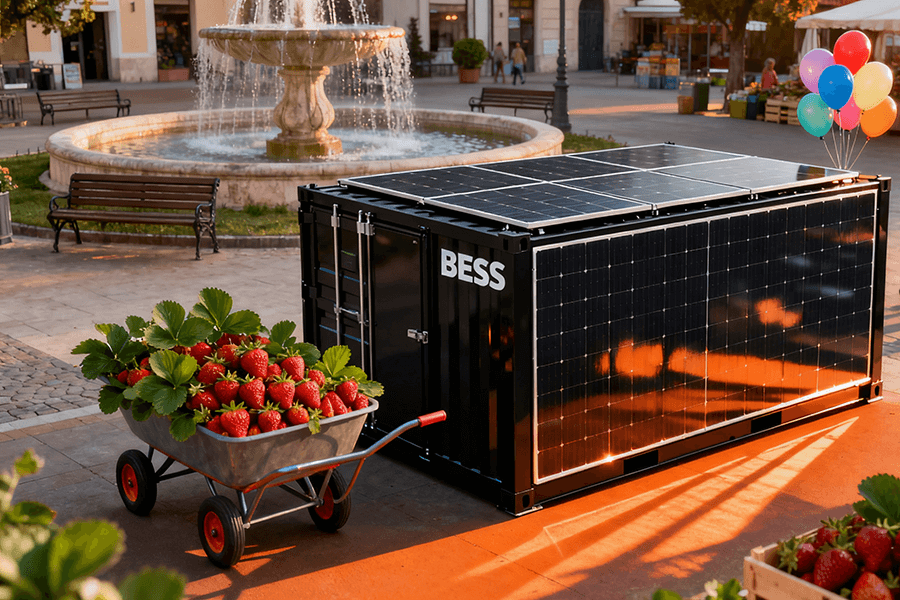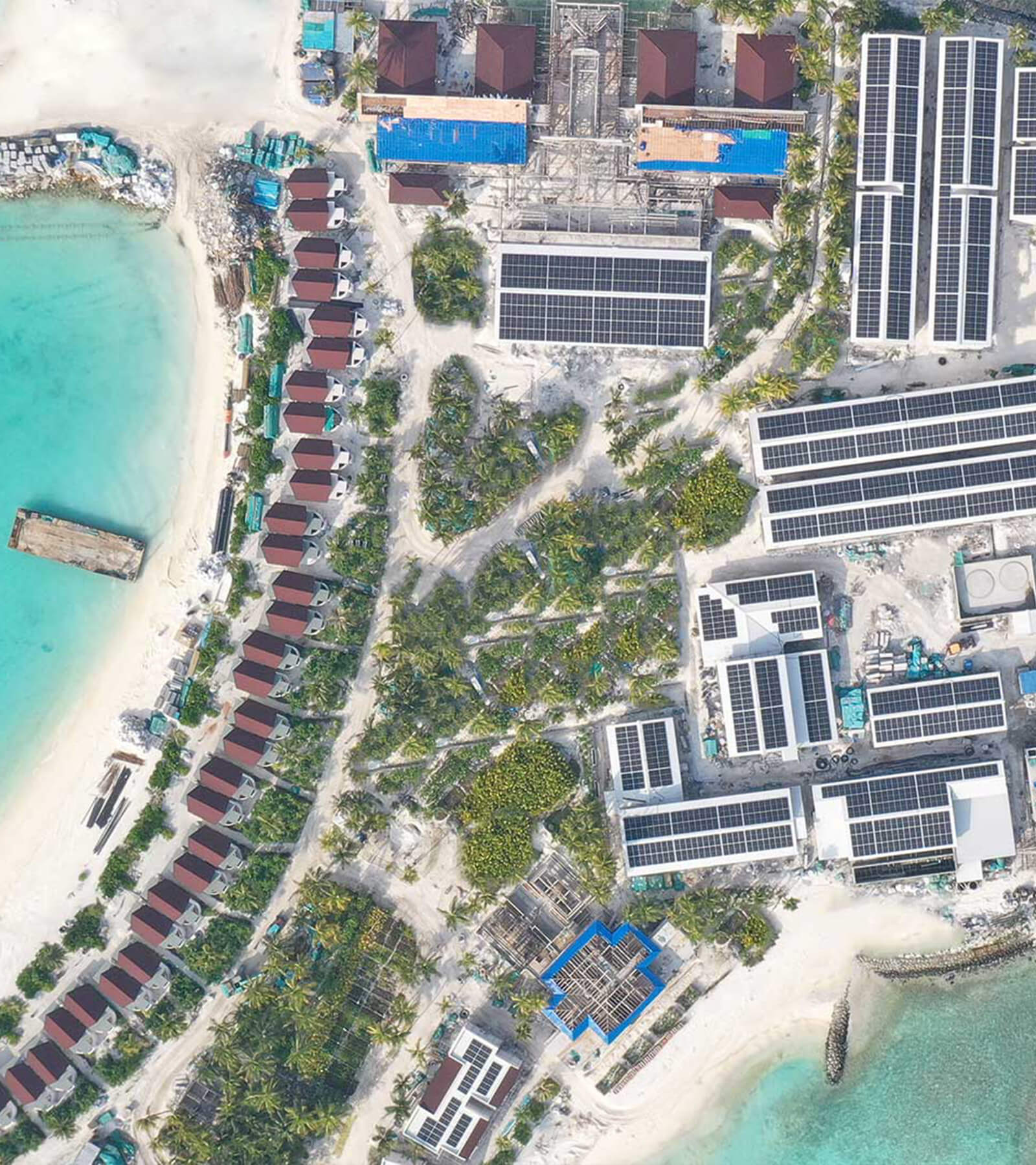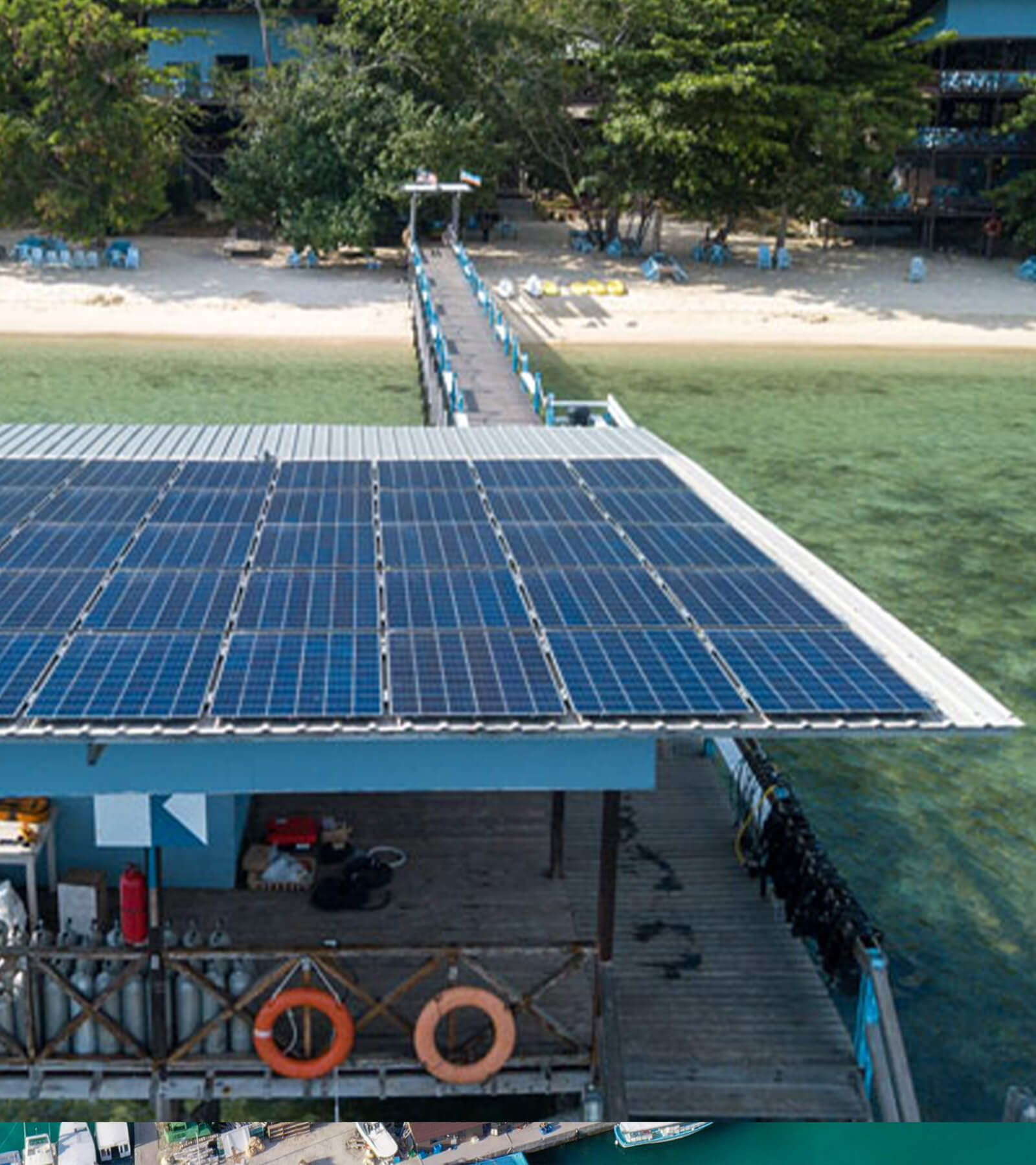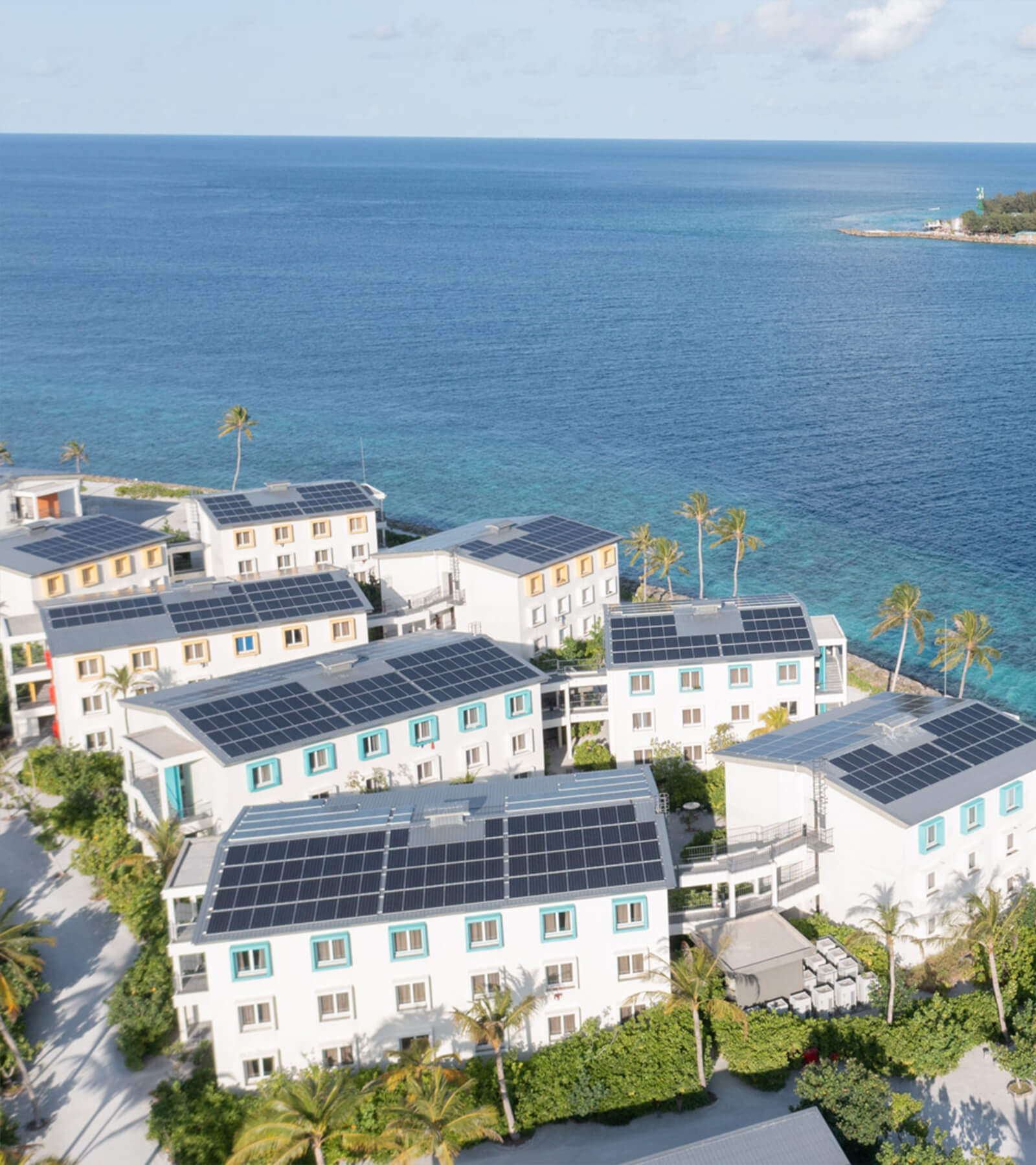
When the Grid Lets Your Avocados Down
Let’s start with a stat that’ll make any vendor wince: Europe is home to over 3,000 community markets, and a jaw-dropping 50% face weekly power outages. These aren’t just minor inconveniences; they’re systemic threats to local economies. For the 90% of these markets that rely on small-scale vendors—many of whom are family-owned operations—power failures are a financial catastrophe.
Consider the tangible impact:
- A single four-hour outage can spoil €10,000+ worth of meat, dairy, and produce, wiping out an average vendor’s weekly profit margin in mere hours.
- Perishable goods losses due to power disruptions account for 28% of annual revenue for small market stalls, according to a 2024 EU Commission study.
The situation worsens with climate change amplifying these disruptions. In 2024 alone:
|
Event
|
Region
|
Impact
|
|
Heatwaves
|
Italy
|
€450 million in crop losses
|
|
Frost
|
Germany
|
€320 million in livestock and fruit damage
|
|
Storms
|
UK
|
€210 million in transportation and storage disruptions
|
These extreme weather events cost European farmers €1.2 billion in losses, with community markets bearing the brunt as supply chains and grids faltered.
But here’s the good news: BESS (Battery Energy Storage System) containers are changing the game. These modular, weather-resistant units store electricity and kick in in milliseconds when the grid fails—eliminating downtime and panic. Unlike traditional generators, BESS units:
- Operate silently, preserving the ambiance of open-air markets
- Require minimal maintenance, reducing long-term costs
- Integrate seamlessly with renewable energy sources, enhancing sustainability
These aren’t just tech gadgets; they’re profitability tools. And as we’ll see, pilot projects in Spain, France, and the Netherlands are already proving their worth, transforming community markets into resilient hubs of local commerce.
BESS Containers: The Market’s 24/7 Energy Lifeguard
BESS containers aren’t one-trick ponies. They serve as triple-threats for community markets, donning three critical hats: refrigeration savior, lighting provider, and equipment backstop. Let’s break down their greatest hits and explore how these versatile energy solutions are revolutionizing market operations.
Refrigeration Backup: Saving Your Steak (and Sanity)
Perishable goods like meat, dairy, and leafy greens follow their own biological clock, paying no heed to grid schedules. The FDA warns that when held above 4°C (40°F) for over 2 hours, these foods turn into health hazards. In the warm, bustling environment of a community market, that dangerous threshold can be crossed in just 1 hour.
This is where BESS containers shine, offering instantaneous power delivery—faster than the blink of an eye or the utterance of “spoiled milk.” Take the example of Barcelona’s iconic La Boqueria Market. In 2024, they installed a 600kWh BESS container as a safeguard against power outages. That July, a heatwave-induced transformer burnout triggered a 3-hour grid failure. But thanks to the BESS system, 50 vendors’ refrigerators and walk-in coolers hummed along uninterrupted.
The impact was significant:
- Cost Savings: €12,000 worth of seafood, cheeses, and berries were preserved.
- Customer Retention: Not a single customer was turned away due to spoiled products.
As one relieved vendor quipped, “My jamón stayed colder than a Scandinavian winter. Thank you, BESS.”
Lighting & Equipment: Keeping the Market Lit (and Selling)
Community markets thrive on flexibility, opening as early as 6 AM to welcome early-bird shoppers and closing as late as 8 PM to accommodate evening crowds. This extended operating window means reliable lighting and power for essential equipment—from cash registers and smoothie blenders to digital scales—are non-negotiable.
Berlin’s Markthalle Neun learned this lesson the hard way in 2023. A 2-hour outage during peak Saturday hours plunged the market into darkness, forcing vendors to fumble with flashlights and turn away disappointed customers. The result? A €4,000 hit to their bottom line.
Determined to prevent future losses, Markthalle Neun installed a 400kWh BESS container. Come February 2025, when another 2.5-hour outage struck, the difference was night and day:
- Continuous Operation: Lighting remained bright, cash registers kept ringing, and market activities carried on as usual.
- Zero Losses: Unlike the previous incident, no revenue was lost during the outage.
The market manager summed it up best: “No more telling customers ‘sorry, we’re in the dark.’ The BESS container is our best employee.”
Cost Savings: BESS Containers That Pay for Themselves
If saving food and sales isn’t enough, BESS containers also offer a compelling financial advantage by significantly slashing energy bills, often paying for themselves within a mere 3–5 years. But how exactly do these innovative systems transform grid costs into profits? Let’s delve into the two primary mechanisms at play.
Peak Shaving: Buying Energy on Sale
European community markets generally operate from 6 AM to 8 PM, a timeframe that coincides precisely with the hours when electricity prices reach their peak. Let’s take Germany as an example: in 2025, peak-hour rates (between 10 AM and 8 PM) soared to €0.32 per kWh, while off-peak rates (from midnight to 6 AM) plummeted to a mere €0.12 per kWh.
BESS containers employ a strategy we like to call “energy couponing”:
- Charging phase: They harness electricity during the cost-effective off-peak hours.
- Discharging phase: They release stored energy during the expensive peak hours.
This intelligent approach effectively reduces the market’s reliance on the grid during peak demand periods, resulting in significant cost savings.
One of the most remarkable success stories comes from Amsterdam’s Albert Cuyp Market, one of Europe’s busiest open-air markets. In 2024, they installed a 500kWh BESS container, and the results were remarkable:
- The market witnessed a 32% drop in peak demand.
- This translated to annual savings of €8,000.
- For the market’s 100 vendors, that equates to an additional €80 per year. This extra income could be used for a variety of purposes, whether it’s enjoying a few rounds of post-market beers or investing in a new batch of fresh flowers to enhance their stalls’ appeal.
Solar Integration: Green Energy for Greener Profits
When paired with solar panels, BESS containers create a match made in sustainability heaven. Covered markets, with their flat and unobstructed rooftops, are the perfect canvas for solar arrays. The BESS units then step in, storing the excess energy generated by the solar panels for use during cloudy days or power outages.
Copenhagen’s Torvehallerne Market is a prime example of this successful integration. In 2023, they installed a 300kW solar system in tandem with a 600kWh BESS container. The results have been outstanding: now, 45% of the market’s energy comes from renewable sources, and it has earned the prestigious EU’s “Sustainable Market” certification. This certification acts as a powerful draw for eco-conscious shoppers, boosting the market’s reputation and footfall. Moreover, with generous subsidies such as Spain’s €300/kWh BESS grant and Denmark’s 25% tax credit for solar-storage systems, the market’s payback period has been significantly reduced to just 3.2 years.
Table 1: BESS Container Success Stories Across Europe
|
Market Location
|
BESS Capacity
|
Key Benefit
|
Measurable Impact
|
|
Barcelona, Spain
|
600kWh
|
Refrigeration backup during a 3-hour outage
|
Saved €12,000 worth of perishable produce by ensuring continuous cooling during an outage
|
|
Berlin, Germany
|
400kWh
|
Power supply for lighting and equipment during a 2.5-hour outage
|
Avoided €5,000 in losses due to uninterrupted operation of essential market functions
|
|
Amsterdam, Netherlands
|
500kWh
|
Peak shaving, resulting in a 32% demand cut
|
Achieved €8,000 in annual savings by optimizing energy usage during peak hours
|
|
Copenhagen, Denmark
|
600kWh (300kW solar)
|
Renewable energy integration
|
Gained 45% grid independence and earned the EU’s “Sustainable Market” certification
|
Table 2: BESS vs. Traditional Backup (100-Vendor Market)
|
Metric
|
BESS Container (500kWh)
|
Diesel Generator
|
|
Startup Time
|
<10 milliseconds
|
3–5 minutes
|
|
Annual Fuel/Upkeep
|
€0
|
€2,300
|
|
CO₂ Emissions
|
0 tons/year
|
12 tons/year
|
|
EU Subsidy Eligibility
|
Yes
|
No
|
|
Payback Period
|
3.5 years
|
7+ years
|
These tables not only highlight the diverse benefits of BESS containers but also starkly contrast them with traditional backup solutions, underscoring the superiority of BESS technology in terms of efficiency, cost-effectiveness, and environmental impact.
Why Maxbo Solar Is Your Market’s Perfect Partner (From Someone Who Knows)
I’ve dedicated an entire decade to the Battery Energy Storage System (BESS) industry, and I can confidently say: not all containers are suitable for the diverse European markets. Each region within Europe presents unique challenges, from extreme temperatures to stringent regulations. At Maxbo Solar, we don’t believe in one-size-fits-all solutions. Instead, we’ve made it our mission to engineer products that are as unique as the markets they serve.
Our BESS containers are designed with European conditions in mind. They’re robust enough to endure the -20°C frigid winters of Scandinavia, maintaining peak performance even in the harshest cold. Simultaneously, they’re highly efficient, capable of operating seamlessly in the scorching 40°C summers of Spain. What’s more, every design aspect is meticulously tailored to comply with EU regulations, ensuring a perfect fit for the European market landscape.
Here’s a detailed breakdown of what sets our containers apart:
Unrivaled Weather Resistance
Our containers are rated IP67, the gold standard in protection. This means they’re:
- Dustproof: Safeguarding internal components from harmful particles that could degrade performance.
- Waterproof: Standing strong against heavy rains, snow, and even the intense heatwaves that have become increasingly common in Europe.
Whether it’s a sudden storm in the UK or a heatwave in Greece, our containers will keep your energy storage safe and operational.
Intelligent Monitoring System
With our state-of-the-art smart monitoring feature, you’re always in the know:
- Real-time Alerts: Our system provides instant notifications via a dedicated app, keeping you updated on battery health and energy usage.
- Proactive Management: Say goodbye to guessing when to charge or worrying about unexpected failures. Take control to ensure optimal performance and longevity.
Strict EU Compliance
Staying ahead of the curve, our containers:
- Meet 2025 Standby Power Rules: Consuming a mere ≤0.5W in idle mode, saving on energy costs and ensuring compliance with the latest EU directives.
- Carry CE Certification: A recognized mark of quality and safety across the continent.
Seamless Solar Integration
We understand the potential of solar energy in Europe’s sustainable future. That’s why:
- Integration: Our BESS containers integrate seamlessly with rooftop solar systems.
- End-to-End Service: Our team handles the often complex and time-consuming permit applications for subsidies, making it easier for you to harness the power of solar and maximize your returns.
Let me illustrate our capabilities with a real-world example. In Sicily, last year, we supplied 500kWh containers to a bustling market with 120 vendors. Paired with a 250kW solar installation, this setup transformed the market’s energy landscape. During summer peaks, the market now enjoys a remarkable 75% reduction in grid dependency. Vendors no longer have to fret about power outages disrupting their business or skyrocketing electricity bills cutting into their profits. Instead, they can focus on what they do best: offering fresh, high-quality produce to their customers.
We also understand that investment in energy storage can be a significant decision. That’s why we offer:
- Flexible Financing Options: Markets utilizing EU “Farm to Table” grants can take advantage of 0% down payments, making the transition to sustainable energy more accessible than ever.
- Industry-Leading Warranty: Our products come with a 5-year warranty—twice the average in the market, giving you peace of mind.
If you’re ready to transform your market into an energy-efficient, freshness-preserving powerhouse, explore our market-specific solutions at www.maxbo-solar.com. Our team of experts is standing by, ready to help you find the perfect BESS solution for your unique needs.
Conclusion: The Future of Fresh Is Powered by BESS
BESS containers aren’t just backup batteries—they’re freshness guardians and economic lifelines. In the face of Europe’s “Generational Renewal Strategy” aiming to combat agricultural aging, these systems are crucial for preserving small vendors’ livelihoods. By ensuring continuous cold storage, BESS containers prevent food waste, keep communities stocked with safe produce, and drive Europe towards its ambitious 2030 carbon neutrality targets.
The data tells a compelling story:
|
Metric
|
Projection
|
|
Annual BESS market growth
|
14.8%
|
|
Community markets adopting BESS by 2035
|
55%
|
With such rapid expansion, the question isn’t if your business needs a BESS container—it’s when. Consider this: a single power outage can spoil an entire shipment of strawberries, decimating profits and damaging customer trust. Don’t let avoidable losses erode your bottom line. Invest in a BESS container today, and safeguard your business, your customers’ satisfaction, and your long-term success.












